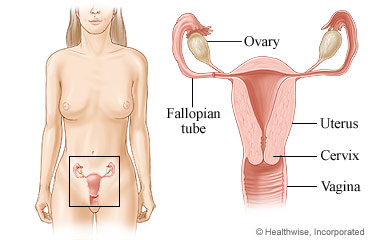Bacterial Vaginosis in Teens: Care Instructions
Overview

Bacterial vaginosis is a condition in which there is excess growth of certain bacteria that are normally
found in the vagina. Symptoms often include abnormal gray or yellow discharge with a "fishy" odor. It is not
considered an infection that is spread through sexual contact.
Symptoms can be annoying and uncomfortable. But bacterial vaginosis does not usually cause other health
problems. However, in some cases it can lead to more serious issues.
While bacterial vaginosis may go away on its own, most doctors use antibiotics to treat it. You may have been
prescribed pills or vaginal cream. With treatment, bacterial vaginosis usually clears up in 5 to 7 days.
Follow-up care is a key part of your treatment and safety. Be sure to make and go to all
appointments, and call your doctor if you are having problems. It's also a good idea to know your test results
and keep a list of the medicines you take.
How can you care for yourself at home?
-
Take your antibiotics as directed. Do not stop taking them just because you feel better. You need to take
the full course of antibiotics.
-
Do not eat or drink anything that contains alcohol if you are taking metronidazole or tinidazole.
-
Keep using your medicine if you start your period. Use pads instead of tampons while using a vaginal cream
or suppository. Tampons can absorb the medicine.
-
Wear loose cotton clothing. Do not wear nylon and other materials that hold body heat and moisture close
to the skin.
-
Do not scratch. Relieve itching with a cold pack or a cool bath.
-
Do not wash your vulva more than once a day. Use plain water or a mild, unscented soap. Do not douche.
When should you call for help?
 Call your
doctor now or seek immediate medical care if:
Call your
doctor now or seek immediate medical care if:
Watch closely for changes in your health, and be sure to contact your doctor if:
Current as of: November 27, 2023
Content Version: 14.0
Care instructions adapted under license by your
healthcare professional. If you have questions about a medical condition or this instruction, always ask
your healthcare professional. Healthwise, Incorporated disclaims any warranty or liability for your use of
this information.